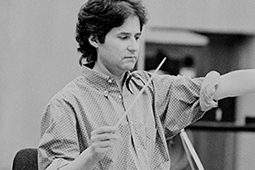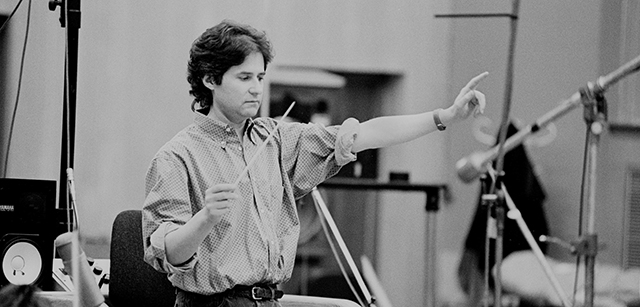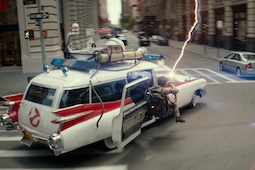
Six years ago today, James Horner died in a plane crash. He was one of the finest melodists and storytellers within the realm of film scoring, and his music graced countless classics including Aliens (1986), Glory (1989), Braveheart (1995), Apollo 13 (1995) and Titanic (1997), for which he received two Oscars and enduring praise.
To mark the anniversary of Horner's passing, we've rounded up some off-the-beaten-track scores that show intriguing, little-seen sides to this musical master.
1. Brainstorm (1983)
This forgotten space oddity is helmed by Douglas Trumbull, special effects supervisor on Stanley Kubrick's 2001: A Space Odyssey (1968). Brainstorm features a starry cast (Christopher Walken, Natalie Wood in her final film role, Louise Fletcher) in an ambitious story about recording sensory experiences from one's brain. The material vacillates between hope and horror, and these contradictory principles inform Horner's score, one of his most important early works. Graceful piano melodies suddenly give way to shrieking dissonance and violent choral effects, and many of these techniques would be translated into his later scores.
2. Sneakers (1992)
The genetic code of Horner scores including The Pelican Brief (1993) and Apollo 13 (1995) can be heard in the delightful, featherlight soundtrack for Sneakers. Phil Alden Robinson's hacking drama assembles an outstanding cast, headed by Robert Redford, for a witty story of industrial espionage and world-threatening secrets. Horner gets beneath the skin of the film beautifully, assembling an unlikely fusion of tinkling piano, piping vocals and Branford Marsalis' smooth saxophone solo to reflect the comical subterfuge of the 'sneakers' collective. Moments of tense paranoia feature low-register, rumbling pianos whose violence is positively shattering compared to the rest of the score's breeziness.
3. Searching for Bobby Fischer (1993)
Horner's ability to mine a host of emotional shades from the piano was a truly enviable talent. He puts these skills to excellent use in Steven Zailian's chess drama, adapted from Fred Waitzkin's novel Searching for Bobby Fischer: The Father of a Prodigy Observes the World of Chess. The narrative is based on the story of real-life chess prodigy Josh Waitzkin, and the internalised, cerebral nature of the sport allows Horner to paint with melodies that are, by turns, introspective and euphoric. The intellectual yet emotionally appealing nature of this score would stand Horner in good stead when later writing the music for John Nash biopic A Beautiful Mind in 2001.
4. Apocalypto (2006)
Horner was often criticised for his tendency towards schmaltz and emotional bombast. It's certainly true that he was among the most emotionally direct of all film composers, which made it all the more striking when he left melody at the door. Mel Gibson's savagely violent Mayan drama elicited a textural and tonal score from Horner, often darkly uncomfortable and impressionistic in its nature replete with violent percussion effects, pan pipes and breathy, growly vocals. It's not the easiest score to listen to, but its singular nature helps it stand out from the crowd. Many of its techniques would be directly lifted by Horner for his score for Avatar (2009).
5. Wolf Totem (2015)
One of Horner's final scores, Wolf Totem marked the composer's return to the sweeping canvas of earlier epics like Legends of the Fall (1994). Yearning, reaching strings speak of natural expanse and man's relationship with nature, as Horner reunites with The Name of the Rose (1986) director Jean Jacques-Annaud to deliver what is, quite possibly, his final masterpiece. Horner relished the ability to paint on a large scale, and was unreserved in his ability to stir the emotions. It generated significant levels of derision from certain quarters, but his melodic gifts remained with him right until the year of his death. Wolf Totem is a stunning epitaph to a stunning career.
What is your favourite James Horner score? Let us know @Cineworld.











.jpg)


.jpg)
.png)






